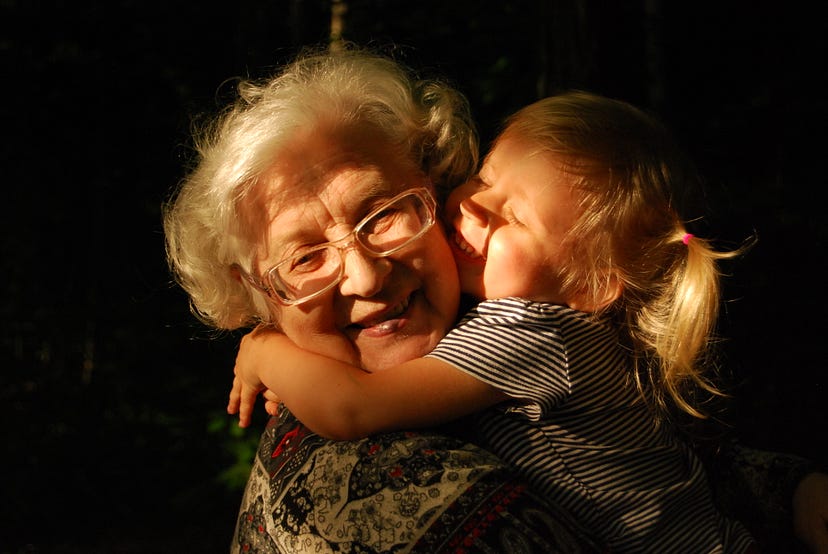In the heart of every family, there are unsung heroes who provide care and support to their loved ones. These individuals, known as family caregivers, play a crucial role in ensuring the health and well-being of their aging or ill family members. As our population ages and healthcare needs evolve, the topic of family caregiving has taken on a newfound importance and relevance.
Family caregiving is a journey filled with love, selflessness, and dedication. However, it’s also a journey that often comes with significant emotional, physical, and financial challenges. Caregivers frequently find themselves navigating uncharted territories, balancing their personal lives with the demands of providing care, often without any formal training or preparation.
The purpose of this article is to shine a light on the complex world of family caregiving. We aim to provide a comprehensive survival guide, filled with practical strategies and resources to help you manage your caregiving responsibilities while also taking care of your own well-being. Whether you’re new to caregiving or have been on this path for some time, our hope is that this guide will provide valuable insights to make your caregiving journey a little less daunting.
Defining Family Caregiving
Family caregiving, at its core, is about providing care and support to a family member who is elderly, chronically ill, disabled, or recovering from temporary illness. A family caregiver may be a spouse, adult child, sibling, or even a close friend who steps in to provide the necessary care.
The roles and responsibilities of a family caregiver can vary widely depending upon the needs of the individual they’re caring for. It might involve assisting with daily tasks such as bathing, dressing, meal preparation, and medication management. In other cases, it could mean providing emotional support, managing financial matters, or coordinating medical appointments and services.
However, family caregiving extends beyond just physical support. It also involves a significant emotional commitment. Caregivers often serve as the primary source of companionship and emotional support for their loved ones, helping them navigate the challenges of their health conditions while also advocating for their needs in various healthcare settings.
Indeed, family caregiving is a multifaceted role that requires a delicate balance of practical skills, emotional resilience, and an abundance of patience. Despite the challenges, it can also bring about profound personal growth, deeper relationships, and a sense of fulfillment from helping a loved one. Understanding the full scope of what family caregiving entails is the first step towards successfully navigating this complex journey.
The Challenges of Family Caregiving
While family caregiving can be a rewarding experience, it is not without its trials and tribulations. The caregiving journey often brings with it a host of challenges that can test even the strongest of individuals.
One of the most significant challenges family caregivers face is the emotional burden. The constant worry for the well-being of the loved one, coupled with feelings of guilt, frustration, and sadness, can take a heavy emotional toll. The caregiver may also face feelings of loneliness and isolation, especially if they’re providing care without much external support.
Physically, the demands of caregiving can be exhaustive. From assisting with personal care tasks to managing household chores and medical appointments, caregivers often find themselves stretched thin. This can lead to physical fatigue and health problems, especially if the caregiver neglects their own health and wellness needs in the process.
Financially, caregiving can also present substantial challenges. There may be direct costs associated with caregiving, such as medical expenses, medication costs, or home modification costs. Indirect costs, like loss of income due to reduced work hours or early retirement to provide care, can also add to the financial strain.
Lastly, navigating the healthcare system and coordinating care can be daunting. Understanding medical jargon, insurance policies, and healthcare rights while ensuring the loved one receives the best possible care requires time, effort, and a steep learning curve.
Recognizing these challenges is not meant to paint a bleak picture but to acknowledge the realities many family caregivers face. It’s crucial to understand that experiencing these difficulties does not reflect failure or inadequacy, but rather the complex nature of the caregiving role. By identifying these challenges, we can better equip ourselves to seek solutions and support.
Stages of Family Caregiving
The journey of family caregiving is often not a straight path, but rather a series of stages, each with its unique challenges and emotional landscape. Understanding these stages can help caregivers navigate their journey more effectively.
- The Awakening Stage: This stage marks the beginning of the caregiving journey. It usually starts with a realization that a loved one needs assistance. The initial emotions at this stage can range from shock and denial to fear and anxiety about the future.
- The Role Acceptance Stage: As reality sets in, caregivers begin to accept their new role and responsibilities. This stage involves learning about the loved one’s condition, understanding their needs, and figuring out how to balance caregiving with other life commitments. Feelings of overwhelm are common during this stage, but there may also be a sense of purpose and determination.
- The Routine Stage: Over time, caregivers develop a routine. They become more adept at managing caregiving tasks, and there is a sense of adaptation to the new normal. However, this stage can also bring feelings of exhaustion and monotony, making self-care crucial.
- The Transition Stage: This stage involves significant changes in the loved one’s health status, requiring adjustments in the caregiving approach. The transition may involve worsening of the medical condition, hospitalization, or moving to assisted living. Each transition brings its own set of challenges and emotions, ranging from stress and uncertainty to grief and loss.
- The Loss and Grief Stage: The final stage of caregiving occurs when the caregiving journey ends, typically due to the death of the loved one. This stage brings profound grief, but also relief, guilt, and a need to redefine one’s identity beyond being a caregiver.
Each stage of the caregiving journey presents its own challenges and requires different coping strategies. By understanding these stages, caregivers can better anticipate and manage the emotional and practical challenges that come their way.
Strategies and Solutions for Family Caregivers
Navigating the complexities of family caregiving can be daunting, but there are practical strategies and solutions that can make the journey more manageable.
- Prioritize Self-Care: It’s easy for caregivers to neglect their own needs while focusing on their loved one. However, self-care is vital to maintain physical health and emotional resilience. This can include regular exercise, adequate sleep, healthy eating, and making time for activities you enjoy.
- Seek and Accept Help: Caregiving is not a journey to be undertaken alone. Don’t hesitate to ask for help from other family members, friends, or community resources. Consider using respite care services to take short breaks and recharge.
- Stay Organized: Keeping track of medications, appointments, and medical information can be overwhelming. Use tools like calendars, apps, or journals to stay organized and manage tasks more efficiently.
- Financial Planning: Consult with a financial advisor to understand the financial implications of caregiving and plan accordingly. This could involve budgeting for caregiving costs, exploring insurance options, or planning for future care needs.
- Embrace Technology: Numerous technological tools can make caregiving tasks easier, ranging from medication reminders to online grocery delivery. Telemedicine can also be a helpful resource for managing healthcare from home.
- Join a Support Group: Connecting with other caregivers can provide emotional support, practical advice, and a sense of community. Consider joining local or online caregiver support groups.
- Practice Mindfulness and Emotional Care: Caregiving can be emotionally challenging. Techniques like mindfulness, meditation, or therapy can help manage stress and emotions effectively.
Remember, there’s no one-size-fits-all solution in caregiving. What works best will depend on your unique situation and needs. The key is to be proactive, flexible, and compassionate towards yourself throughout the journey.
Resources for Family Caregivers
There are numerous resources available to support family caregivers in their journey, offering everything from practical advice to emotional support.
- Support Groups: These provide a platform for caregivers to share experiences, seek advice, and find comfort in knowing they’re not alone. These groups can be found locally or online.
- Respite Care Services: These services offer temporary relief for caregivers, allowing them some time off while ensuring their loved ones are still cared for. They can be particularly helpful during periods of high stress or when the caregiver needs a break.
- Online Forums and Blogs: The internet is a wealth of information and support. Online forums and blogs dedicated to caregiving can provide tips, personal stories, and a sense of community.
- Books on Caregiving: There are many books available that offer advice and insights into the caregiving journey, covering topics like managing stress, navigating healthcare, and dealing with grief.
- Professional Services: Various professionals can assist in caregiving, from home health aides and occupational therapists to financial advisors and legal experts. These professionals can help manage specific aspects of caregiving, reducing the overall burden.
- Educational Resources: Websites of reputable health organizations often have sections dedicated to caregivers, offering educational materials about various health conditions and caregiving strategies.
- Technology Tools: Apps and gadgets designed for caregivers can help with medication management, scheduling, remote monitoring, and more, making caregiving tasks more manageable.
Utilizing these resources can significantly ease the burden of family caregiving and provide much-needed support. Remember, it’s not a sign of weakness to seek help. Instead, it’s a proactive step towards making your caregiving journey more manageable and sustainable.
The Importance of Advocacy for Family Caregivers
As family caregivers navigate their journey, they often become the strongest advocates for their loved ones. They stand at the front lines, ensuring their loved ones receive the best possible care and their rights are upheld.
Advocacy can take many forms in a caregiving context:
- Medical Advocacy: This involves communicating with healthcare providers, asking questions, understanding treatment options, and making informed decisions about the loved one’s health.
- Financial Advocacy: Understanding and navigating insurance policies, managing medical bills, and ensuring the loved one’s financial resources are used effectively fall under this category.
- Legal Advocacy: This could involve understanding legal rights and responsibilities, setting up power of attorney or advance directives, and ensuring the loved one’s wishes are respected.
- Social Advocacy: Advocating for the loved one’s social needs is equally important. This could mean facilitating social interactions, protecting their dignity, or advocating for their inclusion in community activities.
- Policy Advocacy: Caregivers can also advocate at a broader level by raising awareness about caregiver issues, influencing policy changes, or contributing to research and advocacy organizations.
Being an effective advocate requires knowledge, communication skills, and persistence. But most importantly, it requires a deep sense of empathy and commitment to the well-being of the loved one. Through their advocacy, caregivers not only enhance the quality of care their loved ones receive but also contribute to a broader societal recognition of the vital role caregivers play.
Words of Encouragement and Hope
As we wrap up this comprehensive guide on family caregiving, it’s important to revisit the key points we’ve discussed. We’ve explored the stages of caregiving, understanding each phase’s unique challenges and emotional landscapes. We’ve highlighted practical strategies for caregivers, from prioritizing self-care to embracing technology and seeking professional help.
We’ve also underscored the importance of advocacy in caregiving, emphasizing the need to stand up for your loved ones in medical, financial, legal, and social contexts. Finally, we’ve shared a wealth of resources available to support caregivers, from support groups and professional services to educational platforms and technology tools.
Remember, no one is expected to navigate the complex world of caregiving alone. Leverage the strategies and resources outlined in this guide to make your journey more manageable. The road may be tough, but with the right tools and supports, you’re well-equipped to handle the challenges that come your way.
In conclusion, if you found this article helpful, we encourage you to share it with others in similar situations. Family caregiving is a shared experience, and by spreading knowledge and resources, we can build a stronger, more supportive community for all caregivers.
Thank you for reading, and remember — you are not alone in this journey. Your dedication, strength, and love make a world of difference in the lives of your loved ones. Keep going, and don’t hesitate to reach out for support when you need it.



